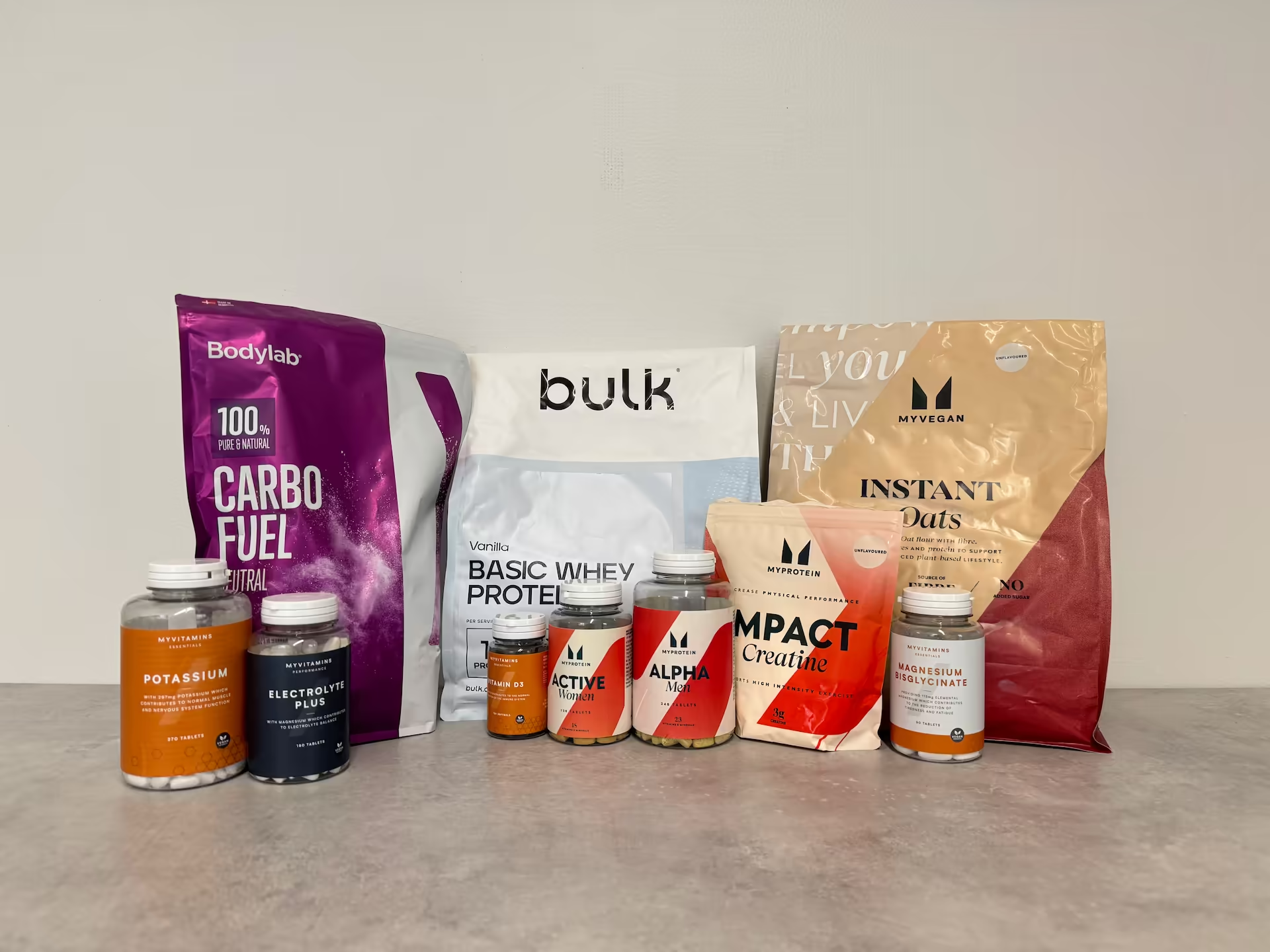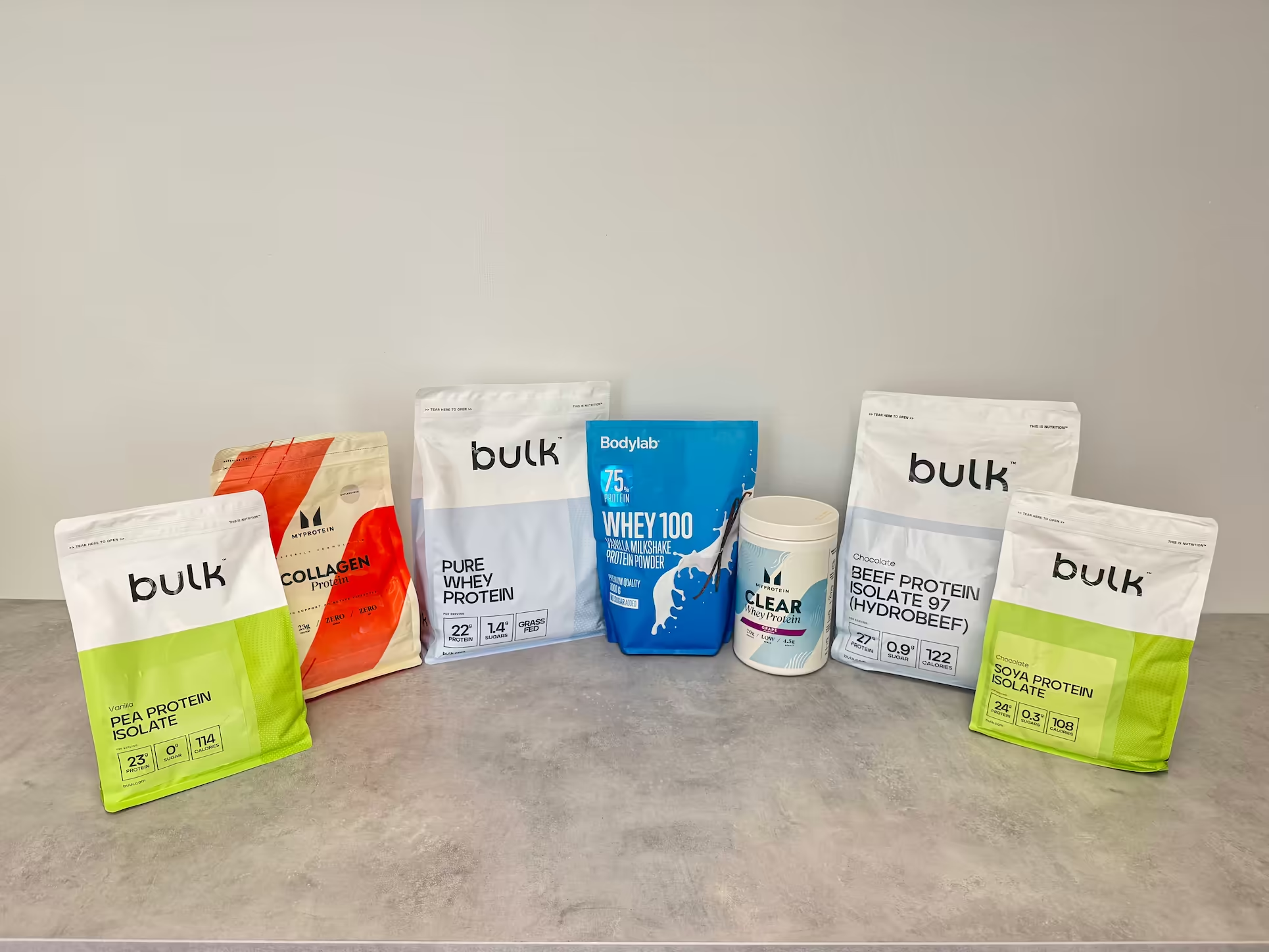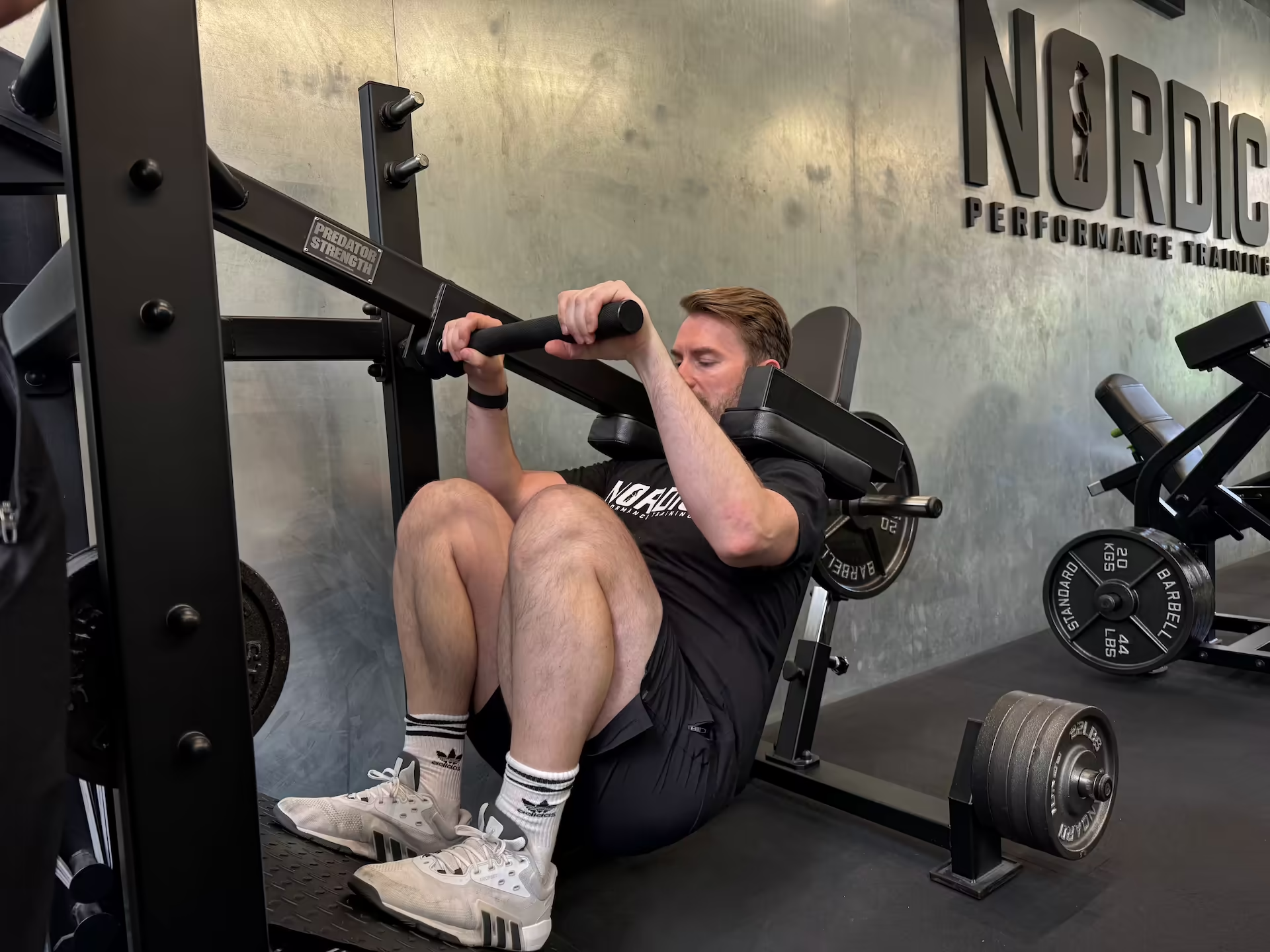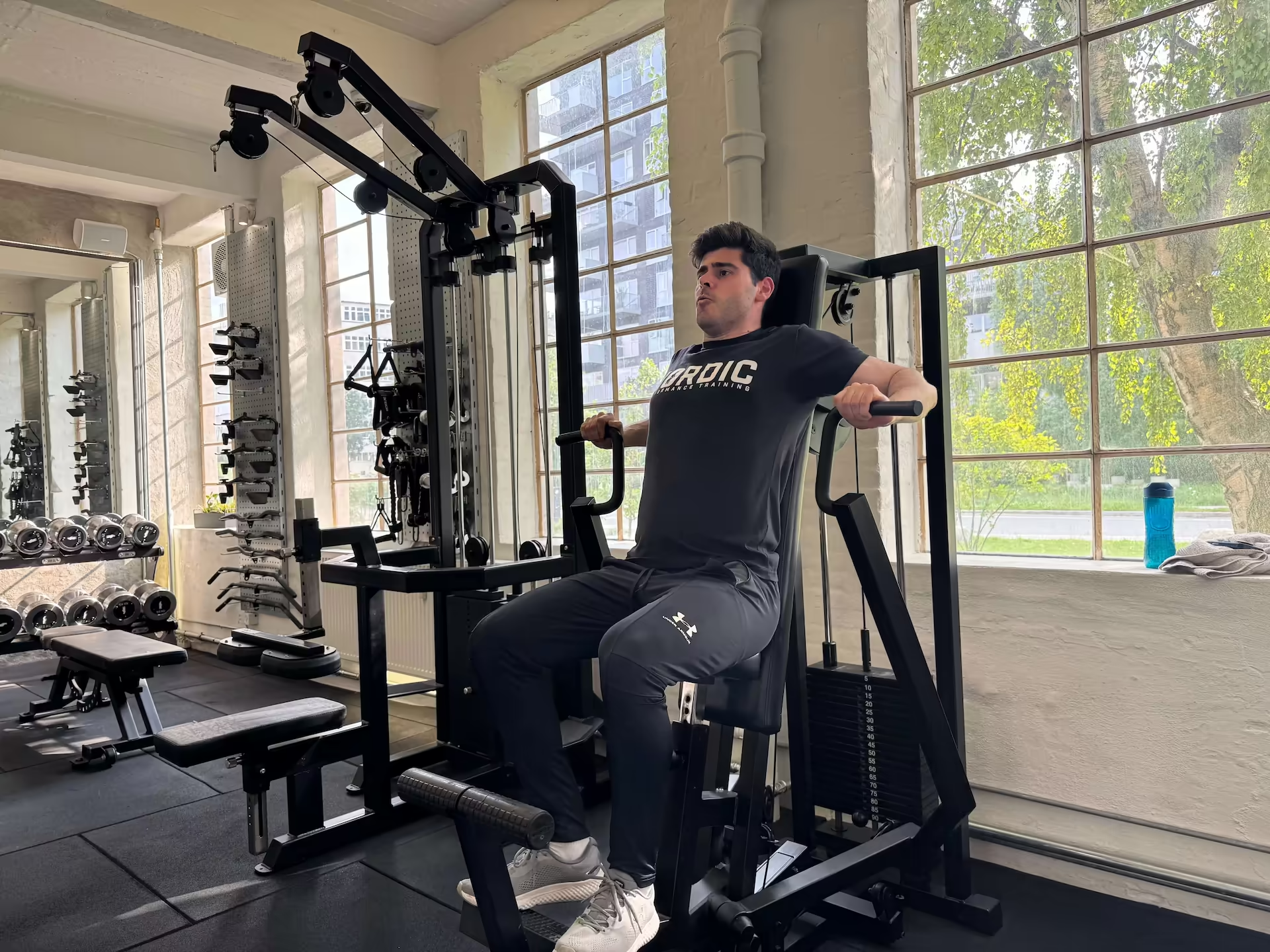Best Pre-Workout Meal Before Strength Training: Guide to Optimal Energy and Performance
With over 10 years of experience as personal trainers and physiotherapists and more than 3,000 clients at Nordic Performance Training, we know exactly what it takes to get the most out of your training.
A good pre-workout meal isn't about energy drinks or supplements – but about giving the body the right fuel at the right time.
Many underestimate how much it matters to eat correctly before training. We often see people show up after a long workday without having eaten for 5–6 hours – and it directly affects energy, focus, and strength.
A 41-year-old consultant who had strength trained regularly for several years without significant results experienced exactly this. When we added simple pre-workout meals to her everyday life, her energy and strength increased significantly – already after four weeks.
In this guide, we review what you should eat before strength training, when you should do it, and how you compose the meal to get optimal energy and performance – without complicated solutions.
Why is a good pre-workout meal important?
Energy optimization through glycogen stores
Strength training requires fast, explosive energy. This energy comes primarily from glycogen – the body's stored carbohydrates in muscles and liver. Without sufficient glycogen stores, you experience rapid fatigue and declining performance throughout training, and in the worst case, you can actually feel really bad and experience hypoglycemia (low blood sugar) with nausea, dizziness, and potentially vomiting. All our clients receive a welcome email at startup, where we ensure they know they should eat something before their training time.
Muscle protection and growth optimization
When you train in a fasted state, you risk the body breaking down muscle protein as an energy source, as there isn't enough glycogen available. By having glycogen and amino acids available in the blood – from a carbohydrate and protein-rich pre-workout meal – you protect existing muscles and create optimal conditions for growth.
Improved focus and mentality
The brain uses approximately 20% of the body's energy and functions best with stable blood sugar levels. A well-timed pre-workout meal ensures mental clarity and focus, which directly affects your performance, technique execution, and thereby improves training quality.
What should a pre-workout meal contain?
Carbohydrates – your primary fuel
Carbohydrates are the body's preferred energy source during high-intensity training like strength training. An appropriate carbohydrate intake before training fills the glycogen depots and provides stable energy, which improves performance, focus, and endurance.
Recommendations:
- 1–4g carbohydrate per kg body weight in the 1–4 hours before training, depending on training intensity and duration.
- For normal strength trainers, 1–2g/kg is typically sufficient to ensure energy and filled glycogen depots without stomach problems.
Best carbohydrate sources before training:
- Oats, granola, cereal products
- Toast, rye bread, rolls
- Rice, pasta, potatoes
- Banana, apple, juice
Protein – muscle protection and growth
Protein before training ensures available amino acids during and after training. This helps minimize muscle breakdown, support muscle protein synthesis, and optimize recovery. Protein combined with carbohydrates can also improve training performance by giving the body building blocks for repair and growth.
Recommendations:
- 0.25–0.5g protein per kg body weight, consumed 1–3 hours before training.
Good protein sources:
- Chicken, beef, fish
- Eggs
- Greek yogurt or other high-protein dairy products
- Protein powder (whey, casein, or plant-based – see our protein powder guide)
Fat and fiber – in limited amounts
Fat and fiber slow digestion and can cause discomfort during training in some people. If you have previously experienced this, you should:
- Limit fat intake 1–2 hours before training
- Avoid large amounts of fiber shortly before training
- Choose lean meat, low-fat dairy products, or similar
Adapted to your training goals
The amounts are indicative and based on evidence for strength training and muscle growth. Always adjust according to individual needs, training intensity, and goals.
The following recommendations are examples based on a man of approximately 80kg, but can be adapted to your own needs based on:
- Carbohydrate: 1–1.5g/kg body weight
- Protein: 0.25–0.5g/kg body weight
Muscle building / Muscle preservation (during weight loss)
- Follow a structured strength training program (you can also read our in-depth Full Body article, where you will also find 3 free training programs)
- Push yourself for optimal muscle stimulation
- Prioritize protein and carbohydrates before training
Recommendation: 20–40g protein + 80–120g carbohydrate
Endurance training
- Higher carbohydrate proportion for lasting energy
- Protein less critical
Recommendation: 20–30g protein + 100–160g carbohydrates (depending on duration and intensity)
Examples of pre-workout meals
Remember, the examples below are based on a man weighing approximately 80 kg whose goal is to build muscle.
Full meals 2–3 hours before training
Meal 1 – Classic protein-rich lunch
- 150g chicken breast, lean fish, or lean beef → ~35g protein
- 150–200g rice (dry weight) or 350–400g cooked potatoes → ~100g carbohydrate
- Vegetables
- Low-fat flavorings (sauce, dressing, sauce)
Total: ~35g protein, ~100g carbohydrate
Meal 2 – Protein-rich breakfast
- 200g Greek yogurt (low fat) → ~20g protein
- 50g oats → ~30g carbohydrate
- 2 eggs → ~12g protein
- 1 banana → ~30g carbohydrate
(For more protein-rich breakfast ideas, read our article with 5 high-protein recipes.)
Total: ~32g protein, ~80g carbohydrate
Light meals 30–60 minutes before training
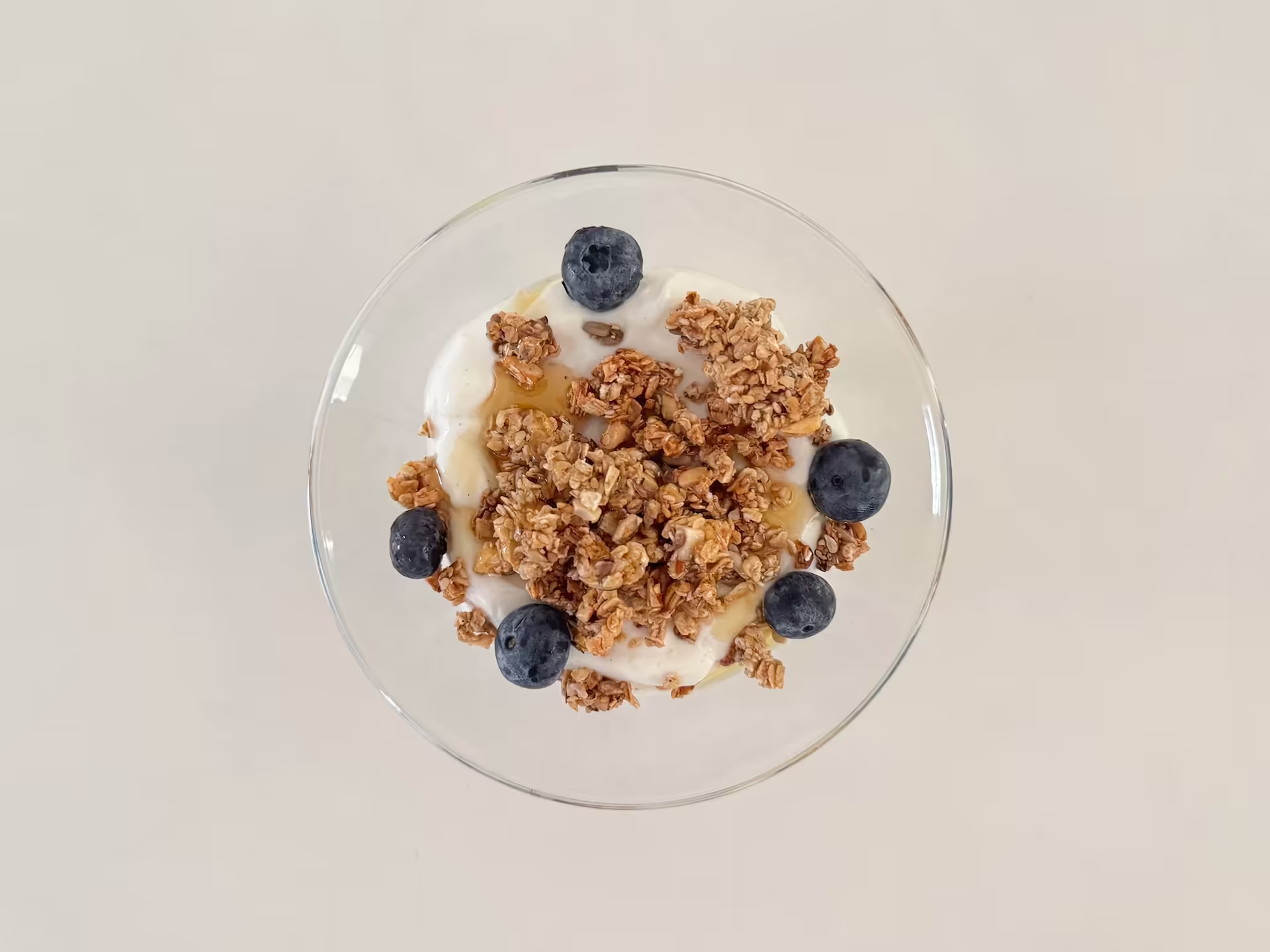
Snack 1 – Yogurt and fruit
- 250g Greek yogurt/skyr (low fat) → ~25g protein
- 1 large banana + 1 tbsp honey → ~50–55g carbohydrate
- 30g oats → ~20g carbohydrate
Total: ~25g protein, ~80g carbohydrate
Snack 2 – Protein shake with instant oats
- 30–35g protein powder → ~30g protein
- 60g instant oats → ~40g carbohydrate
- 1 banana → ~30g carbohydrate
- 200–300ml milk/water
Total: ~30g protein, ~110g carbohydrate
Snack 3 – Ready-made protein shake + banana + oats
- 1 ready-made protein shake → ~25g protein
- 1 banana → ~30g carbohydrate
- 30g oats → ~20g carbohydrate
- Total: ~25g protein, ~80g carbohydrate
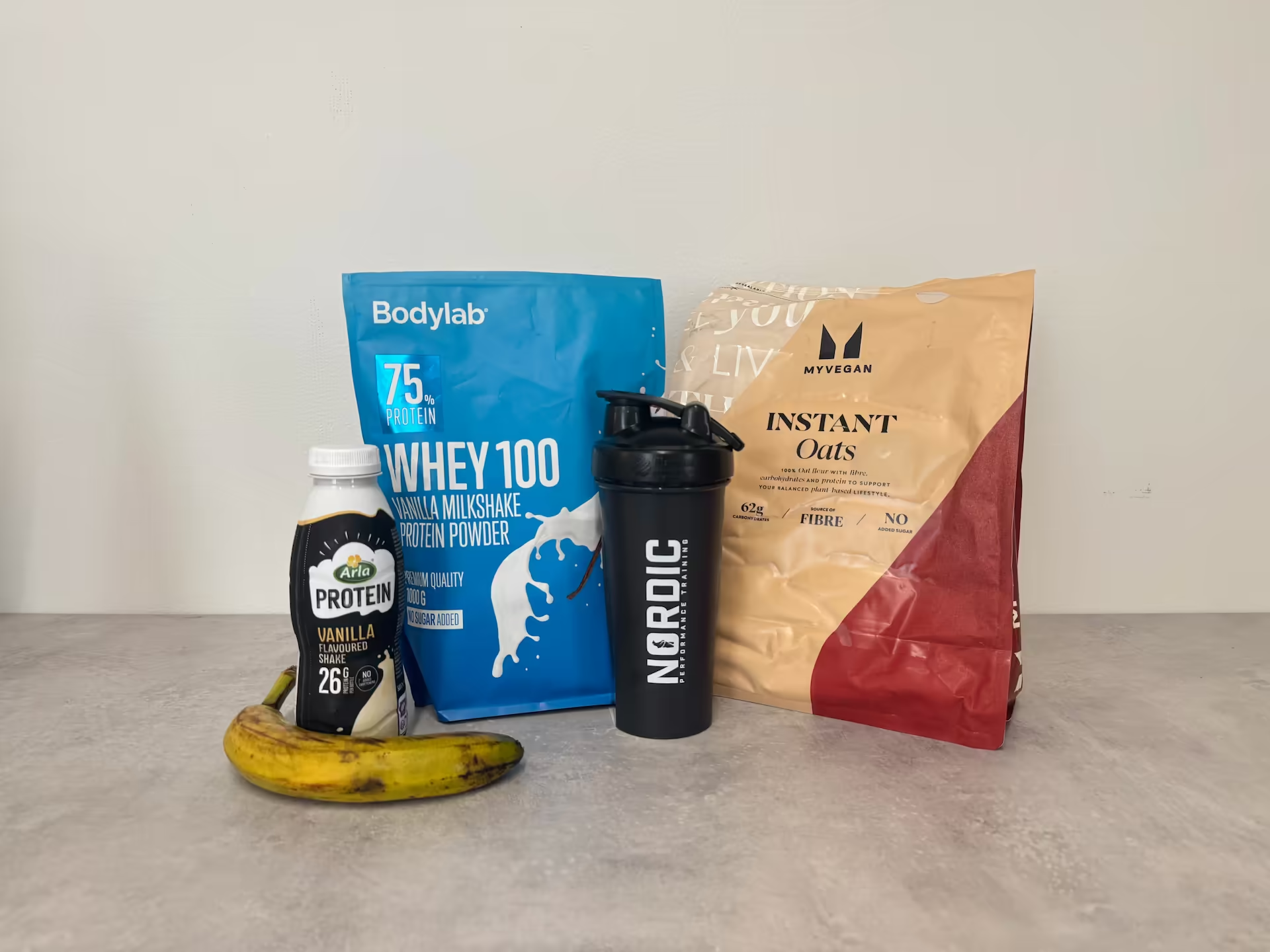
Fast carbohydrates 10–20 minutes before training
- 200–300ml juice → ~25–30g carbohydrate
- 1 banana → ~25–30g carbohydrate
- Or 40g dextrose powder → ~40g carbohydrate
Total: ~0g protein, ~40g carbohydrate
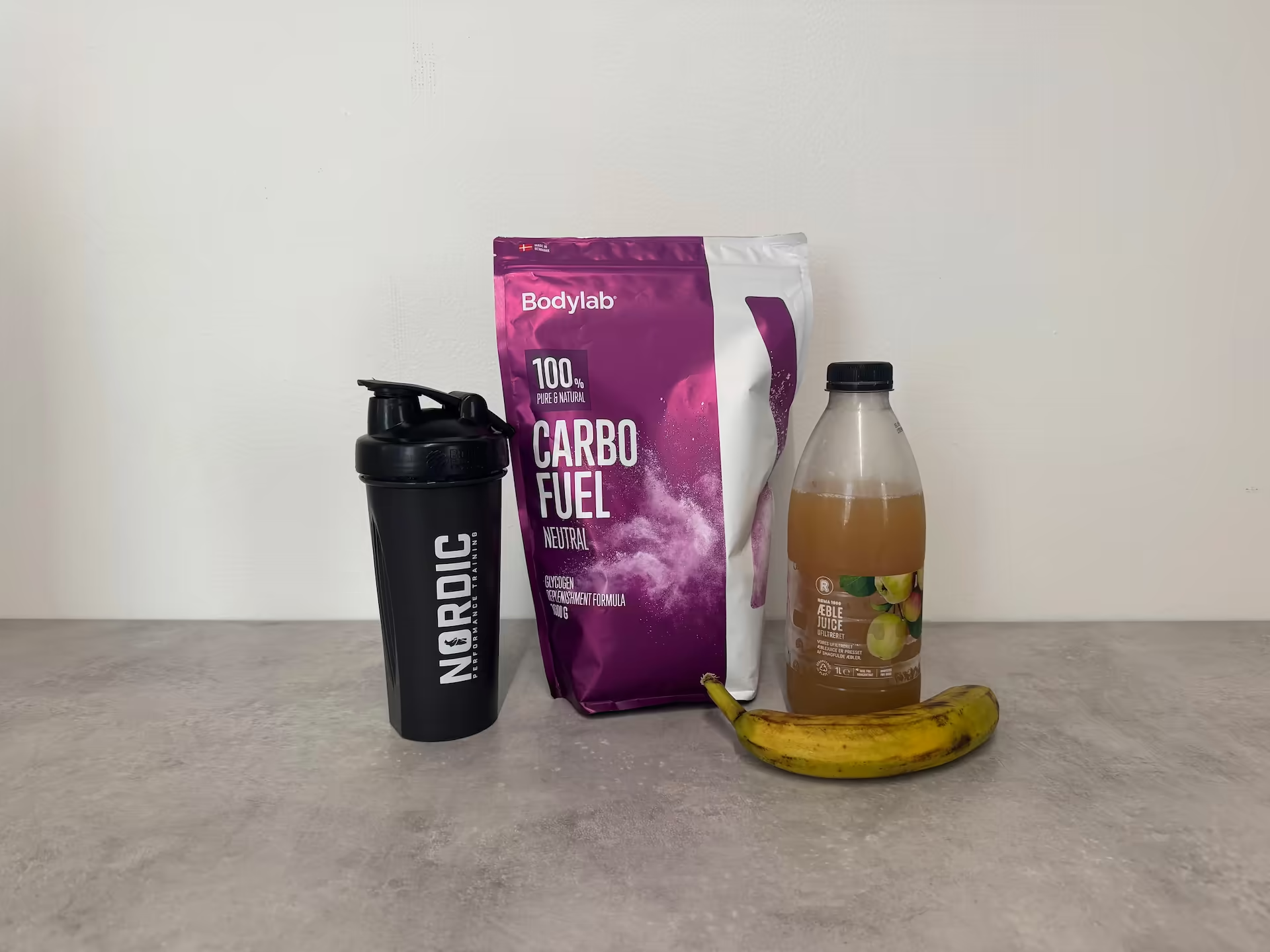
Supplements vs. meals
Advantages of whole foods
Natural foods provide complex nutritional profiles with vitamins, minerals, and fiber. They also create longer satiety and more stable energy levels than isolated supplements.
Advantages of supplements
Practical, especially for early morning training or busy schedules. They provide quick digestion and precise dosing of macronutrients (protein, carbohydrate, and fat).
Popular pre-workout supplements
The most documented pre-workout supplements are:
- Caffeine: 200–400mg, 30–45 minutes before training
- Creatine: 5g daily (timing irrelevant)
- Carbohydrates: Dextrose or maltodextrin as needed
Want to know more about supplements? You can read our article What are supplements?
We normally recommend that our clients drink a cup of coffee 1–2 hours before training, if they like coffee and it's not too close to bedtime. Remember, it's only a small energy boost and cannot replace a pre-workout meal.
The optimal pre-workout drink: Energy and focus in one
Based on experience with thousands of 1:1 strength training sessions, we have developed this simple but effective pre-workout drink:
Ingredients
- 30–40g chocolate protein powder
- 5g creatine monohydrate (approx. 1 tsp)
- 2 tsp instant coffee
- 200–300ml milk
- Ice cubes
- Optional: 1 tbsp sugar for extra carbohydrates
- Optional: 1–2 pieces of fruit on the side
Method
- Mix all ingredients in a protein shaker
- Add ice
- Enjoy 30–60 minutes before training
Why it works
- Caffeine: Acute focus and strength
- Creatine: Energy for the muscles
- Protein: Amino acids for recovery
- Carbohydrates: Quick energy (from milk, sugar, or fruit)
Frequently Asked Questions about Nutrition Before Training
What is best to eat before training?
The best thing you can eat before training is a combination of carbohydrates and protein approximately 60 minutes before. It provides both energy and protection of muscle mass. Good examples are skyr with fruit and muesli or a protein shake with fruit.
What is the best pre-workout meal?
It depends on timing. 2–3 hours before training: eat a full meal with chicken, rice, and vegetables. 30–60 minutes before: choose skyr with fruit or a protein shake. Aim for approximately 1–1.5g carbohydrate and 0.25–0.5g protein per kg body weight.
Is it good to eat a banana before training?
Yes, bananas are a good source of fast carbohydrates and potassium, which support the muscles' work. Combine with protein, e.g., skyr, protein shake, or a little protein powder, for optimal effect and longer-lasting energy.
Should I eat protein before training?
Yes. 30–40g protein before training helps protect the muscles and promotes muscle growth, especially during strength training. It can come from skyr, eggs, protein powder, or a complete meal with meat and rice.
How long before training should I eat?
A full meal should be eaten 2–3 hours before training. A light meal or snack 30–60 minutes before, and fast carbohydrates like banana or energy bar can be taken 10–20 minutes before, if you lack energy.
What should I avoid before training?
Avoid large amounts of fat and fiber, as it delays digestion and can cause discomfort during training. Fatty or very heavy meals make the body sluggish and can reduce performance.
Can I train on an empty stomach?
Yes, but it's rarely recommended. Training on an empty stomach can give lower energy, worse performance, and increased breakdown of muscle protein. It can also lead to low blood sugar and discomfort — especially during strength or high-intensity training.
Electrolytes – when does it make sense?
Endurance training over 1 hour
During training over 1 hour with significant fluid loss, you lose essential electrolytes through sweat. Supplements with sodium, potassium, and magnesium may be relevant.
Classic strength training +1 hour under hot conditions
Normally, strength training rarely requires electrolyte supplements, unless you train under very hot conditions with large fluid loss.
Conclusion and recommendations
The most important takeaways
- Timing is crucial: 30–60 minutes before training for a light snack, 2–3 hours for a full meal
- Balance macros: Combine carbohydrates and protein, limit fat and fiber
- Quality over complexity: Simple meals work best
- Listen to your body: Adjust based on individual tolerance and preferences
Our recommendation
What you eat before training doesn’t need to be complicated – but it can make the difference between an okay and a fantastic training session. Start simple: try skyr with muesli and a banana 30–60 minutes before strength training. Evaluate your energy and performance, and adjust as needed.
Remember, diet is only one factor that affects your training results. For more in-depth guidance, you can read our article How to Choose the Right Personal Trainer or book a free startup conversation with us, and we will make the right plan for you.
References
Kerksick, C.M., Wilborn, C.D., Roberts, M.D., et al. (2018). ISSN exercise & sports nutrition review update: Research & recommendations. Journal of the International Society of Sports Nutrition, 15(1), 38. https://pubmed.ncbi.nlm.nih.gov/30068354/
Schoenfeld, B.J. & Aragon, A.A. (2018). How much protein can the body use in a single meal for muscle-building? Implications for daily protein distribution. Journal of the International Society of Sports Nutrition, 15(1), 10. https://pubmed.ncbi.nlm.nih.gov/29497353/
Kreider, R.B., Kalman, D.S., Antonio, J., et al. (2017). International Society of Sports Nutrition position stand: Safety and efficacy of creatine supplementation. Journal of the International Society of Sports Nutrition, 20(1), 2196367. https://pubmed.ncbi.nlm.nih.gov/28615996/
Related Blog Posts
.svg)
.svg)

.svg.webp)




